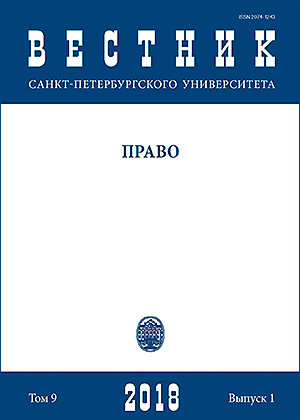About the right of the territorial subject of the federation to objection
DOI:
https://doi.org/10.21638/11701/spbu14.2018.104Abstract
In this article is established the legal nature of the extraordinary nullification powers of a territorial subject of a federation with respect to a decision of a federal government as expressed in a regulatory legal act. By means of systems analysis of the current legislation of the Russian Federation, tendencies of development of federalism in world practice, domestic legal and political traditions, the following theses are demonstrated by the author: 1) the right of the territorial subject of a federation to objection corresponds to the principles of the democratic and constitutional state, 2) the right to objection expressed in the form of a nullification of a regulatory legal act cannot be recognized unlawful in the case where the territorial subject of the federation which announced the objection used for permission of the arisen political and legal crisis the legal mechanisms which are available in the existing federal legislation or not contradicting it. On the basis of the stated theses the author comes to the conclusion that the political and legal integrity of a state is best assured when a federal territorial subject adopts into law a procedure by which the nullification of a normative legal act is effected on its territory and judicial control is levied on such procedures.
Keywords:
nullification, federation, territorial subject of the federation, right, politics, legal act, judicial review, compliance assessment
Downloads
References
Downloads
Published
How to Cite
Issue
Section
License
Articles of "Vestnik of Saint Petersburg University. Law" are open access distributed under the terms of the License Agreement with Saint Petersburg State University, which permits to the authors unrestricted distribution and self-archiving free of charge.






